Farmworkers and heat exhaustion
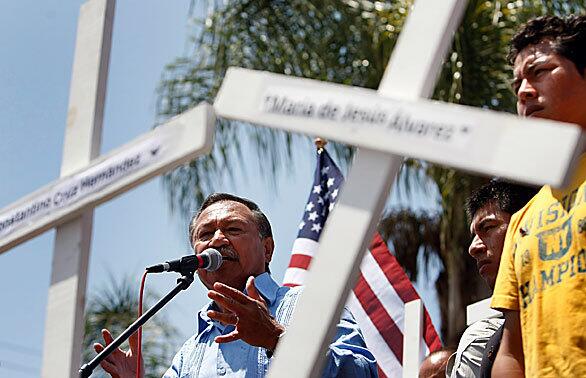
United Farm Workers President Arturo Rodriguez speaks about the need for shade and water during a recent vigil to commemorate the farmworkers who have died from heat-related causes in
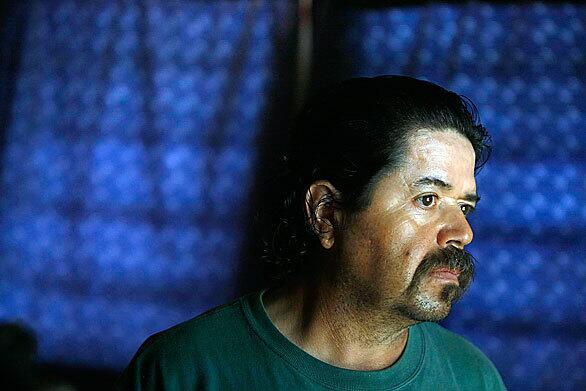
Jose Rosario Valencia spent four days in a hospital last month being treated for dehydration and heat stroke after moving irrigation pipes in an Antelope Valley onion field, where there was no shade relief and the closest water was about a mile away. (Brian Vander Brug / Los Angeles Times)
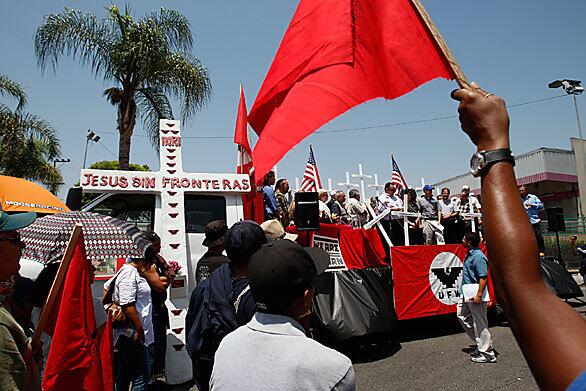
United Farm Workers supporters gather around the stage during the recent vigil to raise awareness about workers who have died and the need for stronger laws and more enforcement. (Allen J. Schaben / Los Angeles Times)

Oxnard area farmworker Israel Guzman at the interfaith vigil, which featured prayers, songs and pleas for change from religious leaders, employees and politicians. (Allen J. Schaben / Los Angeles Times)
Advertisement
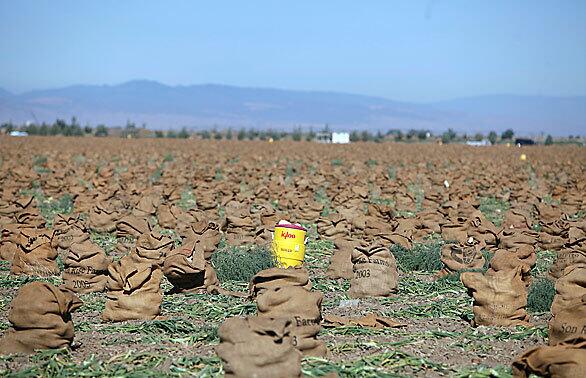
A jug of water sits among bags filled with onions in an Antelope Valley onion field one recent morning. (Brian Vander Brug / Los Angeles Times)
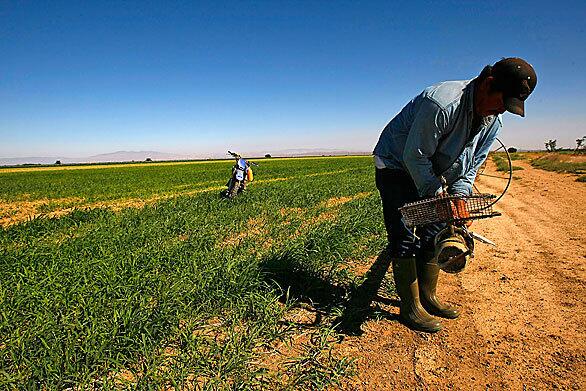
Farmworker Jesus Villalobos fixes an irrigation pipe in an alfalfa field in
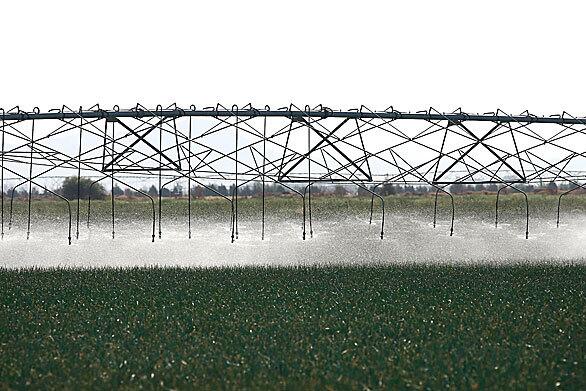
Irrigation pipes in an Antelope Valley onion field water the crops one recent morning. (Brian Vander Brug / Los Angeles Times)
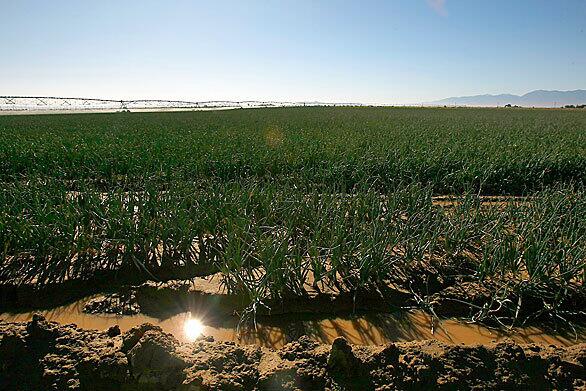
A flooded Antelope Valley onion field in the morning sun. (Brian Vander Brug / Los Angeles Times)
Advertisement
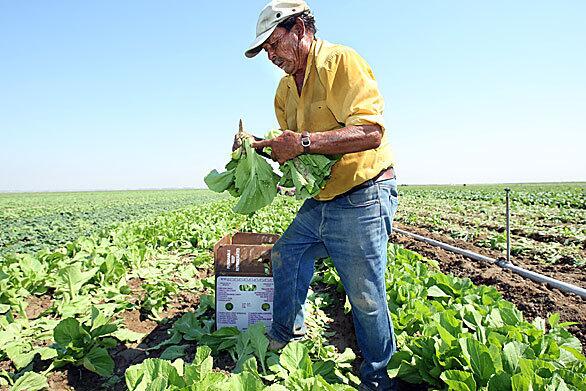
Jesus Chavez, 76, harvests Asian vegetables in the fields near Arvin in
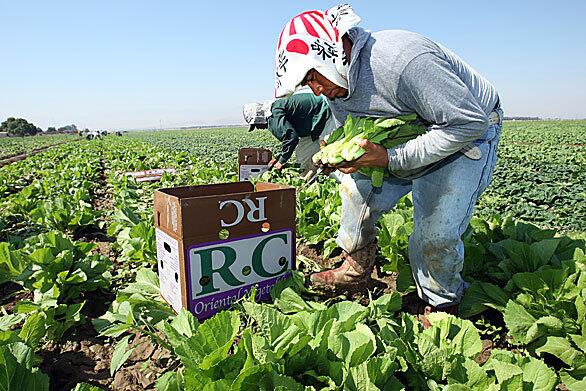
Fernando Cacarez, 24, works in a field in Arvin. The workers make $2.50 per box of vegetables picked. Cacarez, one of the fastest of the group, averages 60 boxes per day, working from 7 a.m. to 4 p.m. during the hottest period of the day. (Kirk McKoy / Los Angeles Times)
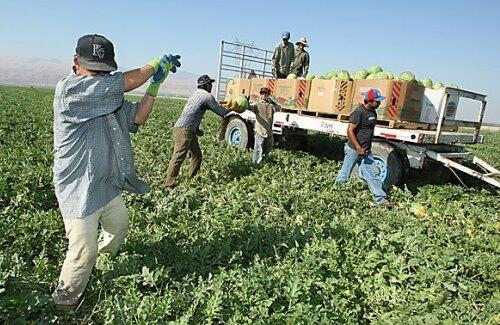
Juan Romero Sandoval, wipes the sweat from his brow as he and five other workers harvest watermelons in Kern County. The workers make $6 per box of vegetables picked. (Kirk McKoy / Los Angeles Times)
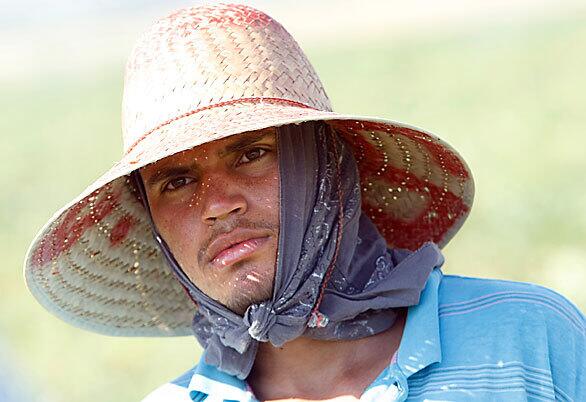
Jesus Romero wears a hat and handkerchief to guard against the heat. Since 2005, when California passed a law to protect farmworkers from heat illness and death, there have been as many as 10 heat-related fatalities. (Kirk McKoy / Los Angeles Times)







